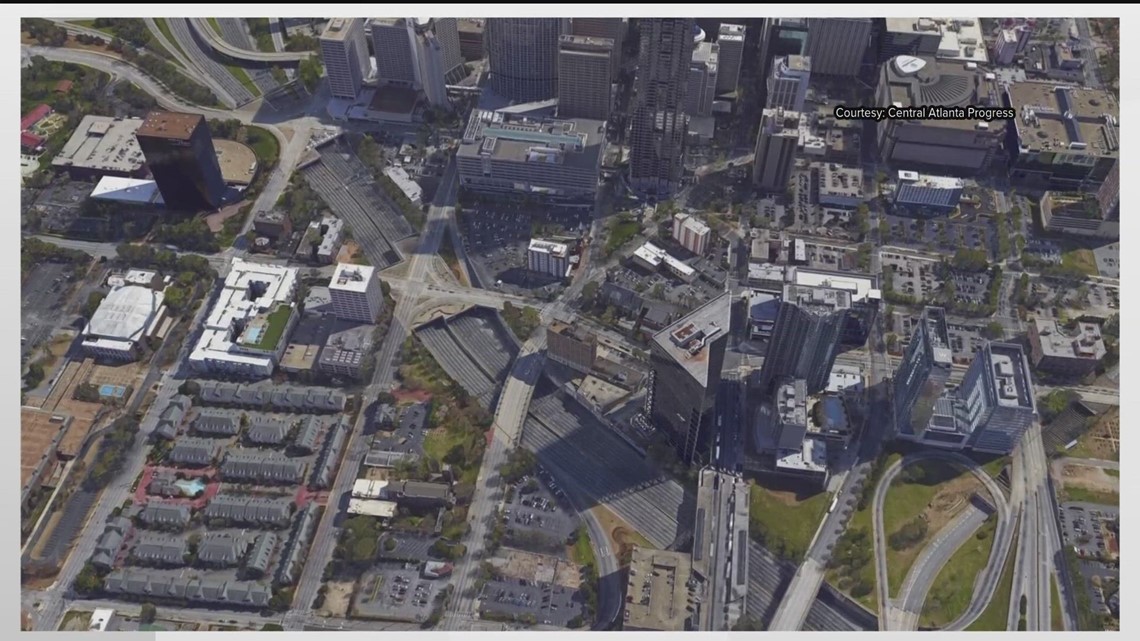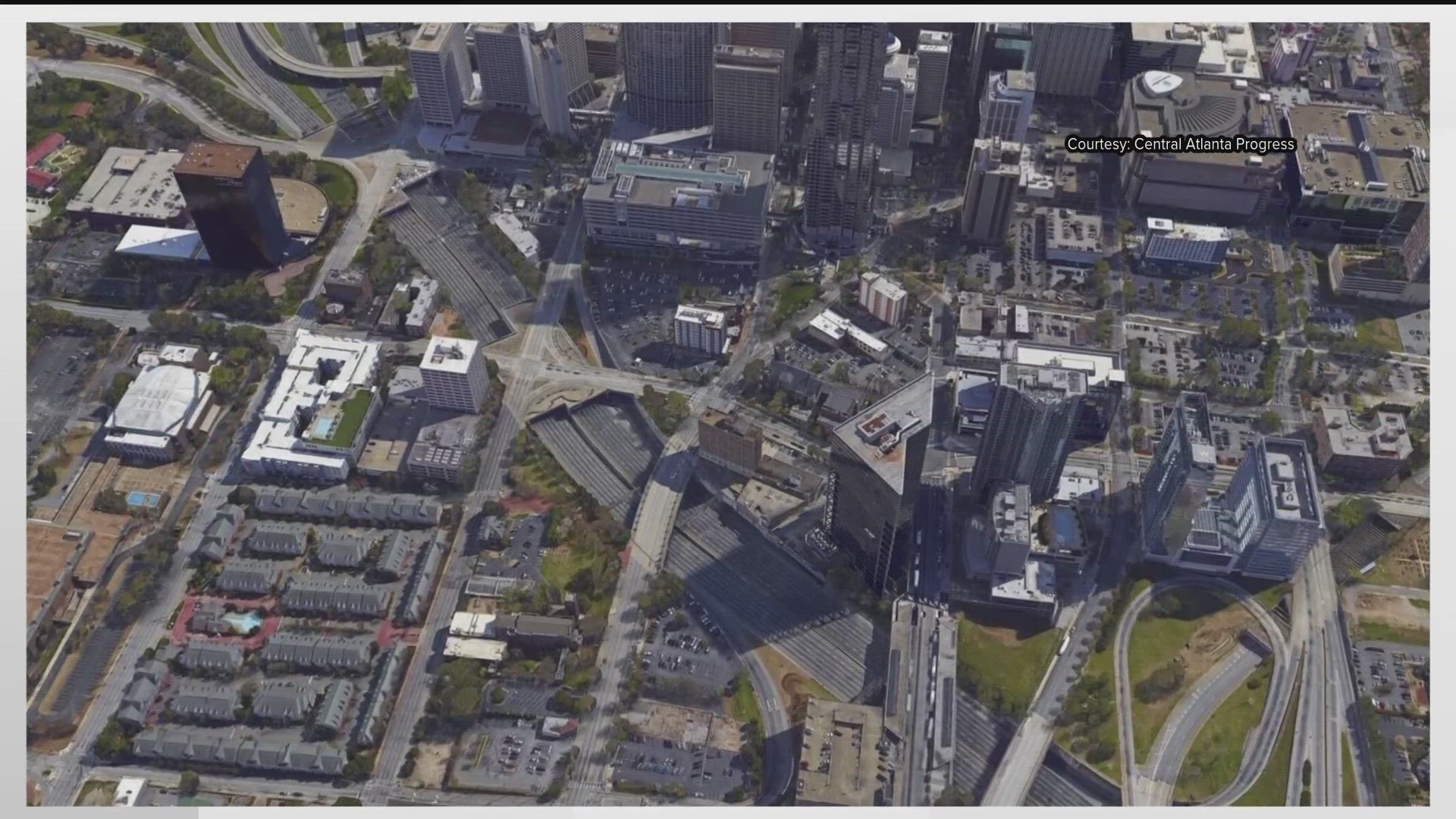ATLANTA — Georgia elected representatives, including Sens. Jon Ossoff, Rev. Raphael Warnock and Rep. Nikema Williams, said on Tuesday that an ambitious project to place greenspace over the I-75/85 Connector has received a major boost thanks to over $150 million in a federal grant.
The project, named "The Stitch," will receive $157 million to initiate Phase 1 of construction. Other Georgia infrastructure projects, including the Atlanta BeltLine to Flint River Trail, are also receiving more than $50 million, the lawmakers announced.
Wait, what's "The Stitch?"
Essentially, the project would cap the space above the I-75/I-85 connector in a similar fashion as the BeltLine was constructed.
Part of the aim of The Stitch is to restore a portion of Atlanta that was divided up by the building of the interstate and contributed to decades of racial inequality, according to project advocates.
The 14-acre greenspace over the interstate will reconnect north Downtown Atlanta neighborhoods previously divided by the highway. The Stitch will also support "new affordable housing and transit-oriented development, improve the overall transportation network in Downtown Atlanta by transforming existing car-oriented streets into complete streets, and enhance a local MARTA rail and regional bus station to improve operations and user experience," according to Warnock's office.


Previously, Georgia Rep. Nikema Williams spearheaded efforts to grow federal support for the project.
"So many projects -- we have great ideas, but the funding is not there to actually move them forward," Williams said. "So, this was this is a huge step in making sure that this project gets completed."
According to projections in a release, the project is on track for a 2026 construction start date and an estimated completion in 2029.
However, there are concerns about potential traffic snags, construction delays, and the possibility of displacing people experiencing homelessness.
What Georgia leaders have to say about the project
Sen. Rev. Warnock called the funds for the project a "tremendous federal award," adding, "The Stitch is a direct result of the people of Georgia sending Jon Ossoff and I to the Senate, and it’s exactly the kind of investment I had in mind when I championed legislation last Congress to invest in reconnecting communities severed by highway construction.”
Meanwhile, Sen. Ossoff stated, "We are delivering historic resources to upgrade transportation and recreation infrastructure for Georgia families.”
City Councilman Matt Westmoreland said, "The stitch will give us a chance to bring thousands of new residents to downtown Atlanta, to bring new jobs, to make sure that the many of the units that we're building are affordable, to add new green space."
Rep. Williams said herself that part of her push with the project is the belief that "infrastructure should strengthen communities -- not divide them. The Downtown Connector divided the Black neighborhoods of Buttermilk Bottoms, Bedford Pines, and Sweet Auburn through the 1956 Federal Highway Act. The Stitch will take steps to reconnect parts of our communities that have been divided for far too long."
Where is this grant money coming from?
According to a release from Warnock's office, the grants were "funded through the Bipartisan Infrastructure Law’s Reconnecting Communities Pilot (RCP) Program and the Inflation Reduction Act’s Neighborhood Access and Equity (NAE) Program -- two pieces of legislation that the Senators championed for their investments in Georgia."
The project has previously received $900,000 as a planning grant and another $5 million that was earmarked for this year to advance engineering prep for the project to the point it is "shovel-ready."
What do residents have to say?
Since the announcement, Atlanta citizens have shared their thoughts online and to 11Alive.
Ayo Adesanya has lived in Atlanta for over 15 years and said he has noticed many changes.
"When I moved, there was about four million people living in the metro area. And now, we're above six million," Adesanya said. "So, there's something that makes that place very attractive."
He understands that the interstate has divided Black communities.
"The highway system was built and it was basically segregating areas of the city," Adesanya said. "So, I think it's a good thing to reconnect places together."
Adesanya has concerns about the stalling of the construction but overall supports the project.
"I think it's a good idea with the amount of traffic that we have in the city," Adensanya said. "So if you can do things to make people not being there, cause I'm all for that."

